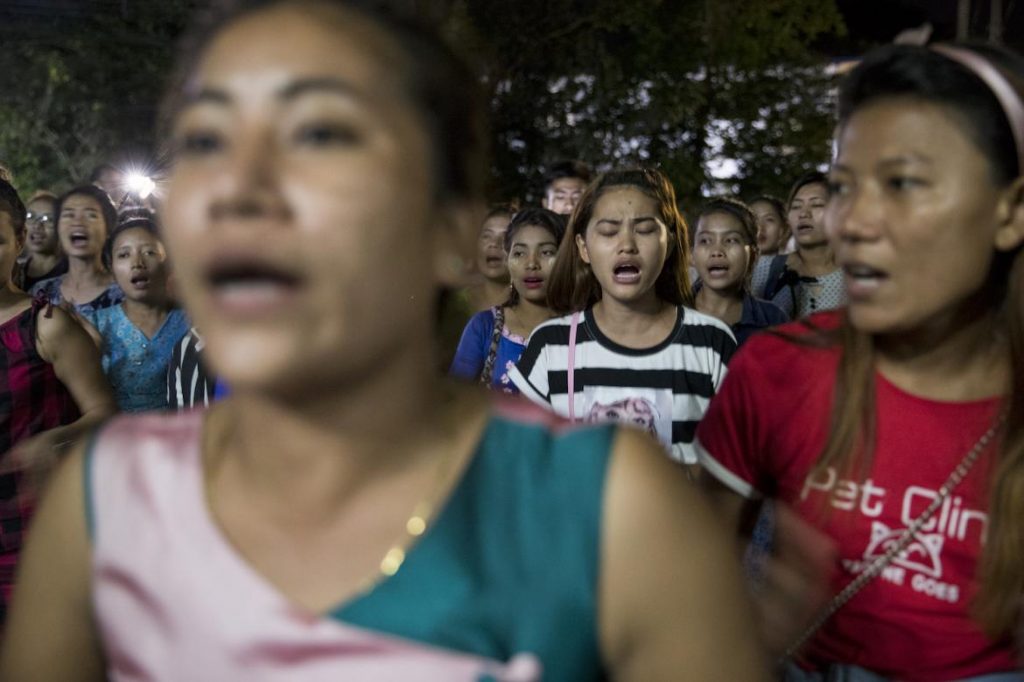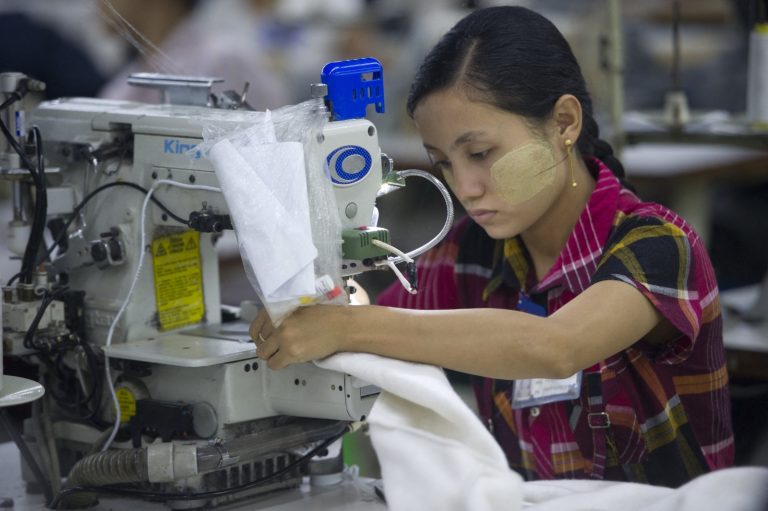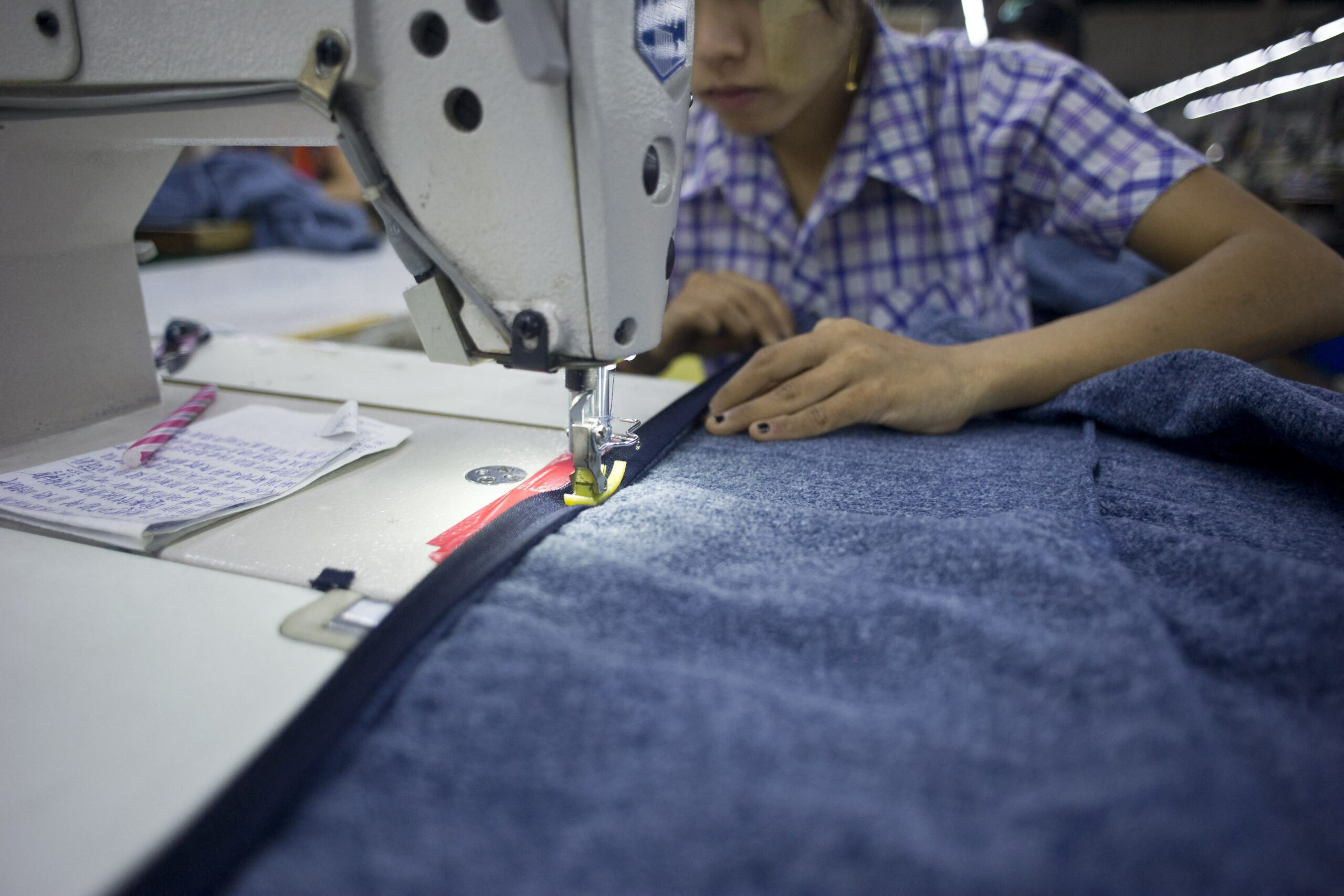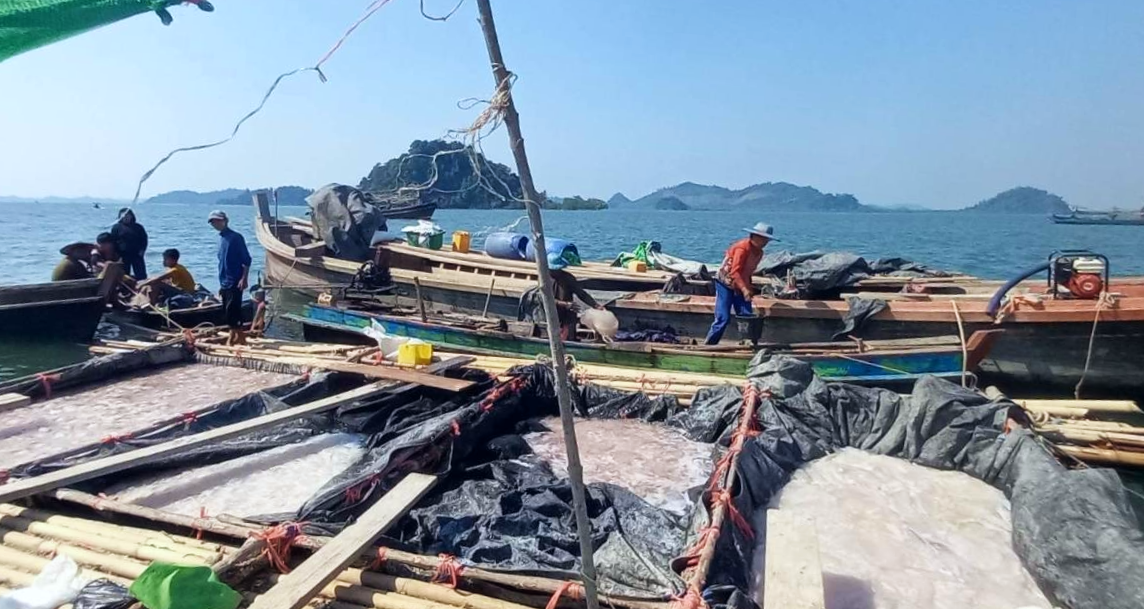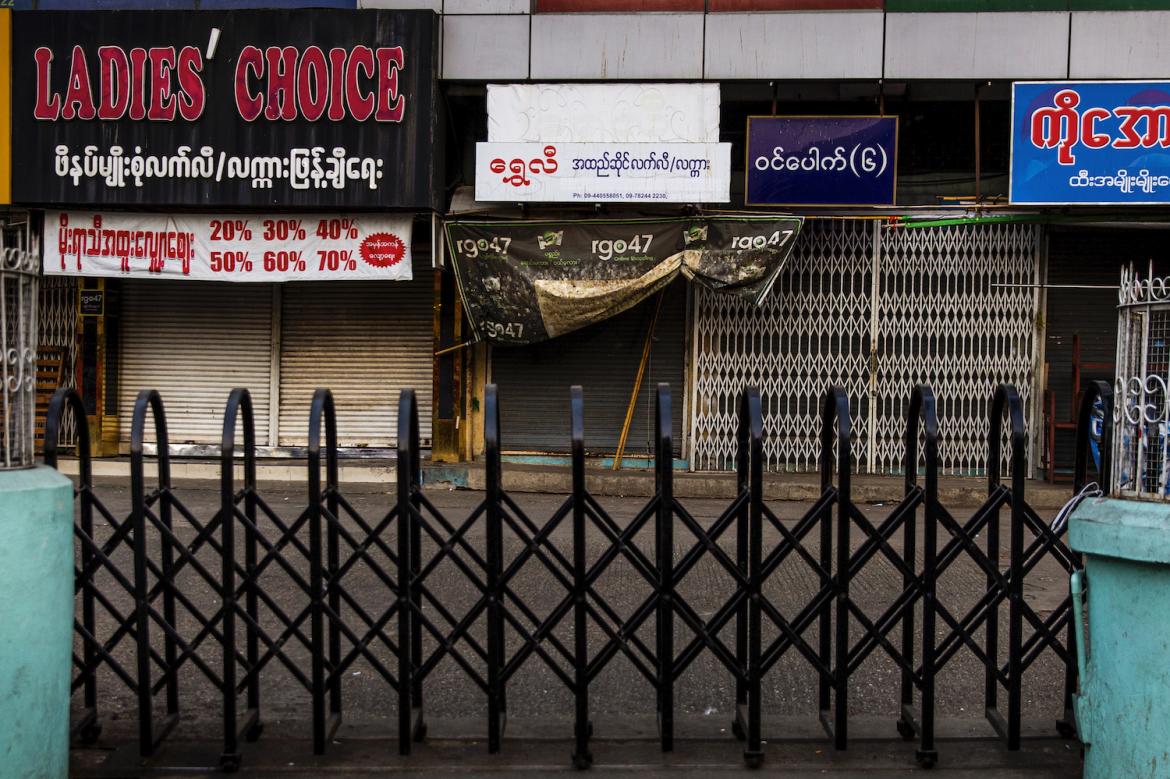By NAW BETTY HAN | FRONTIER
YANGON — Hundreds of striking workers ended a sit-in protest outside the Yangon regional government compound in Ahlone Township on October 23 following the intervention of Chief Minister U Phyo Min Thein.
The sit-in, which began on October 21 and involved about 250 employees from 12 garment factories on Yangon’s outskirts and from the Department of Fisheries office in Kyimyindaing Township, was the first such protest since the regional government took office in 2016.
It was called off after Phyo Min Thein and regional Minister of Immigration and Human Resources Daw Moe Moe Su Kyi met employee and employer representatives from the garment factories at 1pm on October 23 and pledged to support a resolution of their disputes through township-level arbitration committees.
Worker representatives said Phyo Min Thein had also promised to take action against strikers who had picketed factories and employers who had violated labour laws.
Support more independent journalism like this. Sign up to be a Frontier member.
The workers held the sit-in to seek government intervention over grievances that included alleged violations of workplace agreements, claims of salaries being deducted for casual leave that had received prior approval and the firing of workers for participating in union activities.
Ma Thae Mon, who was sacked by the Kai Chan garment factory in Hlaing Tharyar Township, said the chief minister’s intervention had justified the two-day, one-night sit-in.
“If the owners adhere to the agreement reached with us and do not abuse our labour rights again, we can say that our movement has been totally successful,” she told Frontier.
However, Thae Mon said the workers were concerned that the employers would not honour their promises to the chief minister.
Daw Myo Aye, programme director of Solidarity Trade Union Myanmar, echoed her concern.
“This is the second time that workers have demanded to see the chief minister about a labour dispute but the first time we have waited in front of the regional government compound,” she said.
“The chief minister had negotiated with both sides the first time, but employers continued to violate labour laws and I hope the government closely monitors the situation following the latest agreement.”
Myo Aye said most of the factory owners were Chinese, though it was not clear if she was referring to Chinese nationals or ethnic Chinese from countries other than China.
Ma Naing Naing Maw, a labour organiser at the Kai Chan factory, told Frontier she was attacked by unknown assailants on the night of October 18 just hours after having lodged a complaint with management about labour law violations. She showed Frontier severe bruises on her leg that had been inflicted in the attack, which left her struggling to walk.
“The owner called me more than three times and warned me not to be involved in organising the protest outside the regional government compound,” said Naing Naing Maw, who has worked at the factory for about two years and is from Hinthada Township in Ayeyarwady Region.
“The owners always try to violate our rights in every way; low pay, poor conditions, no paid overtime or performance bonuses, and abusing our right to take leave. If we complain, they threaten to sack us,” she said.
“Even though they have made promises in front of the chief minister to resolve disputes, they have done nothing and violations of labour rights have continued.”
But Daw Kyi Aye, a spokesperson for the Kai Chan factory, said the workers were using labour activities to “pressure” the owner into agreeing to their demands.
“We didn’t do anything to them, we just manage them according to the rules and regulations of our factory’s system” she said.
Kyi Aye confirmed that management had promised to negotiate with workers so they could resume work but action would have to be taken if they had breached the factory’s rules and regulations.
Ma Khine Thazin Oo, a striking employee of the Natural Garment company factory at Hlaing Tharyar Township, said it was common for factory owners to hinder workers from forming labour unions.
She said they also often failed to abide by the terms of agreements on worker entitlements that been reached with township dispute arbitration committees under the terms of the Settlement of Labour Disputes Law.
In particular, they refused to re-hire workers who had been fired for participating in demonstrations, she said.
Yangon Region Hluttaw MP U Kyaw Zaya (NLD, Dagon 2) said labour disputes were one of the biggest challenges for the regional government.
“The regional government always tries to resolve labour problems using short-term solutions, such as negotiations between workers and employers, but the same problem happens again and again,” he said. “It shouldn’t just negotiate agreements, it should also focus on ensuring that they are adhered to.”
Unlike the garment factory workers, the public servants from the fisheries department were not satisfied with their meeting on the morning of October 23 with the immigration and human resources minister, Moe Moe Su Kyi.
The workers were protesting over the April sacking of six of their colleagues.
“The minister and the officials told us to transfer to another department in line with the necessary procedures, but we don’t want to do that,” said U Min Zaw, one of the 30 workers from the Kyimyindaing office who joined the sit-in after being sacked.
“The minister asked us to send an official letter [requesting to be rehired], but I was surprised by that request because we have sent letters several times before and now they want another one,” he said.


